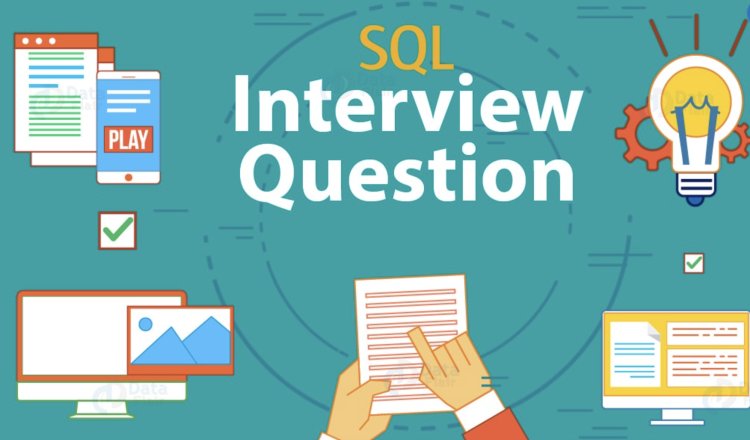Top 20 Topics for Sr. Developer | SQL Interview | DATABASE interview

Certainly! Here are some intermediate to advanced SQL interview questions suitable for developers with 5 to 8 years of experience:
-
Normalization: Explain the concept of database normalization and its different forms (1NF, 2NF, 3NF).
-
Indexes: What are database indexes, and how do they improve query performance? Can you explain the differences between clustered and non-clustered indexes?
-
Joins: Discuss the various types of SQL joins (INNER JOIN, LEFT JOIN, RIGHT JOIN, FULL JOIN). When would you use each type, and what are the potential pitfalls?
-
Subqueries: What is a subquery, and how is it different from a JOIN operation? Provide an example of a situation where a subquery is more appropriate than a JOIN.
-
Performance Optimization: Describe some strategies for optimizing SQL queries and improving database performance.
-
Transactions: What is a database transaction? Explain the ACID properties of transactions and how they ensure data integrity.
-
Views: What is a database view, and why might you use it? Can a view be indexed, and if so, why would you do that?
-
Stored Procedures vs. Functions: Compare and contrast stored procedures and functions in SQL. When would you use one over the other?
-
Concurrency Control: How does a database handle concurrent transactions? Discuss techniques like locking and optimistic concurrency control.
-
Indexing Strategies: Explain when and how you would use composite indexes. What are covering indexes, and how do they impact query performance?
-
Normalization vs. Denormalization: When is it appropriate to denormalize a database, and what are the potential advantages and disadvantages?
-
Database Security: What are some best practices for securing a SQL database, and what roles and permissions are commonly used to control access?
-
SQL Injection: What is SQL injection, and how can it be prevented or mitigated in database applications?
-
Window Functions: Explain window functions in SQL. Provide an example of how you would use them in a query.
-
NoSQL vs. SQL: Compare SQL databases with NoSQL databases. In what scenarios would you choose one over the other?
-
Database Design: Describe your approach to database schema design. What factors do you consider when designing a database schema?
-
Backup and Recovery: What are the best practices for database backup and recovery? How would you handle a critical data loss situation?
-
ETL Processes: What is ETL (Extract, Transform, Load), and how does it relate to databases? Describe a situation where you implemented an ETL process.
-
Database Sharding: Explain the concept of database sharding and when it is appropriate to use it for scaling a database system.
-
Query Optimization: Given a complex SQL query, walk through the steps you would take to optimize it for better performance.
These questions cover a range of SQL topics and should help you assess a candidate's depth of knowledge and experience with SQL databases. You can tailor the questions to the specific needs of your interview and organization.
What's Your Reaction?















